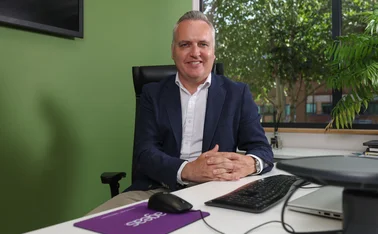
FCA consults on Covid guidance regarding customers in financial difficulty

The Financial Conduct Authority has launched a consultation to update guidance, introduced during the Covid-19 pandemic, to support insurance customers in financial difficulty.
In November 2020, the FCA introduced finalised guidance for insurance firms to support customers in financial difficulty due to the coronavirus pandemic.
The watchdog is now consulting on expanding the scope of the insurance aspects of the Covid guidance to cover all customers in financial difficulty, regardless of the reason for being so.
Under the updated guidance, insurance firms will be expected to reassess the risk profile of customers that may have changed since purchasing the policy. This, the FCA said, should include consideration of whether the customer’s circumstances have changed as a result of financial difficulty and customers could potentially be offered a lower premium.
Firms should also consider whether there are other products they can offer that would provide appropriate cover at a price the customer can afford and revising the cover accordingly.
In order to help customers affected by the cost of living crisis, firms are also expected to consider adjusting the cover to take account of the financial change in customer’s circumstances, both on short term basis and longer term basis.
The watchdog also expects the firms to work with customers to avoid the need to cancel cover that is important to them but where actions lead to cover being adjusted or cancelled, firms are expected to consider whether it is appropriate to require the customer to pay all the contractual fees or charges associated with the changes.
Financial difficulty
The consultation comes as the number of customers in financial difficulty has increased in recent years. According to the FCA’s 2022 Financial Lives Survey, the number of UK adults with low financial resilience increased from 10.7 million in 2020 to 12.9 million in 2022.
The watchdog added that it has seen levels of insurance product ownership decrease between 2020 and 2022. The number of adults without a general insurance product has risen from 6.3 million to 8.6 million during this period, although the FCA stated that the decrease was partly due to reductions in travel insurance following the pandemic. There have also been proportionally higher reductions in general insurance holding among certain groups of customers, such as consumers with characteristics of vulnerability.
The new guidance will supersede the insurance aspects of the Covid guidance, the FCA stated, with the aim to reduce the impact of financial difficulty on customers, help them maintain an appropriate level of insurance they can afford, and reduce the risk of customers losing appropriate insurance cover that is important to them.
Protect customers
The FCA has previously instructed insurers to protect customers from unnecessary products or add-on and unfair penalties in light of the soaring cost of living putting pressure on household.
It has written to insurance industry CEOs back in September warning them that wherever poor practice is found, it will “quickly intervene” to protect customers from harm.
Sheldon Mills, executive director of consumers and competition at the FCA, said: “Access to insurance is vital, providing peace of mind and security in case things go wrong.
“By extending our guidance we are helping consumers keep that safety net, and ensure they’re properly supported when they claim, even as the cost of living increases.”
An Association of British Insurers spokesperson said: “Insurers recognise the financial pressures facing many households and are committed to supporting customers in these challenging times. Anyone struggling to meet their premium payments should contact their insurer to discuss the options available to them. We’ll work with our members and the FCA to understand how we can best support this important consultation.”
Timely move
Branko Bjelobaba, managing director at compliance consultancy Branko, pointed out the move away from Covid to “a more all-embracing cost of living crisis” was timely.
He said: “I would be appalled if any insurers, brokers or premium finance providers were exploiting customers right now. We had rules come into force last year to ensure that renewing motor and home products were priced the same as the equivalent new business and we’ve also had round one of the product value assessments process which has been a lamentable failure as most insurers simply did not do what was required to evidence that their product could be signed off as providing fair value once they had also considered the broker’s own assessment of the services that they, and anyone else in the chain, was providing (and whether these also provided fair value).”
However, Bjelobaba said he was “disturbed” that some brokers are resorting to “high charges” for administrative changes that the “commission already said should be covered” and are “continuing to drive up the costs of finance”.
He continued: “Those rules are there to ensure that fair value is provided and apply equally to everyone in the chain. Financial difficulties will be experienced by many and this is not the time to exploit these vulnerabilities and whilst the FCA is to be applauded they really need to bottom out what we already have in place which is a core part of the incoming Consumer Duty.
Sue Mallender, senior consultant, Sicsic Advisory, said extending the guidance is “logical” but it “shouldn’t make much of a difference to good firms” as it largely mirrors existing guidance on vulnerable customers.
She said: “The direction of travel was clear from the higher regulatory bar that the Consumer Duty brings, with the need to demonstrate and evidence good customer outcomes.
"Both insurers and brokers should ensure that their systems will meet the FCA's guidance. Giving prominent information about these measures is particularly important, as the FCA's Financial Lives survey showed that many customers are reluctant to discuss financial difficulty with their provider.”
Mallender said the firm is now awaiting separate consultation on premium finance provisions, which are a “crucial part of the chain for customers in financial difficulty”.
She added: "We encourage firms of all sizes to participate in the consultation. The number of adults without a single general insurance policy has increased by 2.3 million between 2020 and 2022 – it is in everyone’s interests to find a path to support and keep customers in the industry."
Tim Johnson, partner at Browne Jacobson said: “This latest statement from the FCA reinforces the regulator’s ongoing commitment to ensuring that firms deliver good outcomes to customers. The present economic climate delivers challenges which have not been seen for a number of years and it is clear the FCA wants firms to treat the needs of customers as an absolute priority.
"This approach is entirely consistent with the requirements of the incoming Consumer Duty, specifically that firms must act in good faith, avoid foreseeable harm to customers and enable and support customers to pursue their financial objectives. This will require market participants, particularly those dealing with consumers, to be flexible and consider the specific needs and vulnerabilities of their customers when undertaking regulated activities.”
Only users who have a paid subscription or are part of a corporate subscription are able to print or copy content.
To access these options, along with all other subscription benefits, please contact info@postonline.co.uk or view our subscription options here: http://subscriptions.postonline.co.uk/subscribe
You are currently unable to print this content. Please contact info@postonline.co.uk to find out more.
You are currently unable to copy this content. Please contact info@postonline.co.uk to find out more.
Copyright Infopro Digital Limited. All rights reserved.
You may share this content using our article tools. Printing this content is for the sole use of the Authorised User (named subscriber), as outlined in our terms and conditions - https://www.infopro-insight.com/terms-conditions/insight-subscriptions/
If you would like to purchase additional rights please email info@postonline.co.uk
Copyright Infopro Digital Limited. All rights reserved.
You may share this content using our article tools. Copying this content is for the sole use of the Authorised User (named subscriber), as outlined in our terms and conditions - https://www.infopro-insight.com/terms-conditions/insight-subscriptions/
If you would like to purchase additional rights please email info@postonline.co.uk
Most read
- Singapore Airlines victim named as retired insurance manager Geoff Kitchen
- Insurance’s wealthiest figures revealed
- Aviva building out strategic broker proposition








